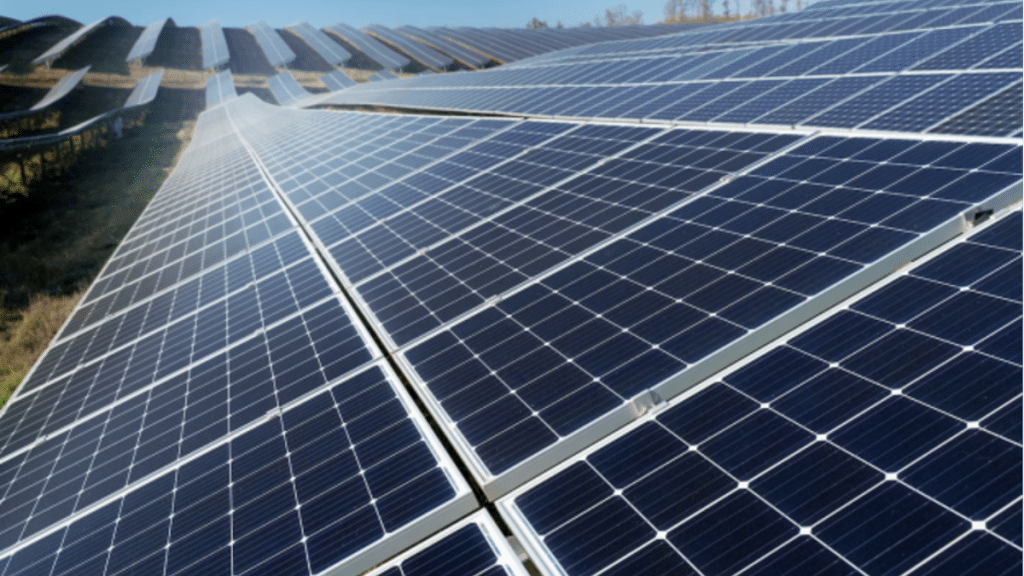You may have noticed several color variations when selecting the most fitting solar panels for your home or office. Some solar panels appear to be all black, whereas others are colored a traditional blue color. It would be best if you learned about the differences between them to determine which suits your needs better.
So, what differentiates an all black solar panel from a traditional blue one? To help you make a smarter choice, we provide an in-depth analysis of these solar panels, their differences, and the reasons why you should choose one.
All Black Solar Panel Vs. Traditional Solar Panel
The following are some of the major distinctions between black solar panels and traditional solar panels:
1. Design and Aesthetics
One of the most noticeable differences between all black and traditional solar panels is their design and aesthetics. As the name suggests, an all black solar panel is colored black from top to bottom. They use black frames, back sheets, and monocrystalline solar cells.
Traditional solar panels, on the other hand, have white backsheets, silver frames and blue polycrystalline solar cells. You may have noticed the white crisscross lines across solar panels; these are due to the white back sheet visible between the solar cells.
Traditional solar panels tend to have a worn-out appearance with time and are not as aesthetically pleasing as black panels. Some people specifically prefer black solar panels for their sleek visual appeal.
2. Efficiency and Performance
All black and traditional blue solar panels tend to differ slightly in efficiency and power output. An all black solar panel comprises black monocrystalline panels, which deliver a higher power output than a traditional blue polycrystalline panel.
Polycrystalline panels’ efficiency ratings usually fall in the 13%-16% range, whereas monocrystalline panels provide efficiencies from 15%-23%.[1] In short, they deliver more kilowatt hours of electricity from the same quantity of sunlight.
3. Heat Management
All black solar panels have a darker appearance and absorb heat much more quickly than traditional blue solar panels. They are suitable for areas that do not have hot climates. In places with higher temperatures, an all black solar panel can reduce the total conversion energy of your solar panel.
Traditional solar panels are superior in this case as they can dissipate heat from the panel more efficiently and prolong its lifespan.

4. Application and Suitability
Black solar panels are particularly used for residential or commercial installments where property owners desire an aesthetic appearance. These solar panels are perfect for dark-colored roofs and modern structures.
Blue solar panels may be less aesthetically pleasing but are preferable in areas with higher temperatures and sweltering climates. Their ability to effectively manage heat makes them much more suitable for these applications.
5. Consumer Considerations
Finally, it comes down to the exact needs of the consumer. Some homeowners prefer all black solar panels due to their visual appeal. However, all black solar panels might fall on the costlier end due to their expensive production process and higher power output.
Traditional blue solar panels are less expensive than those produced from lower-quality silicone cells and have a more straightforward production process. Homeowners who want to turn to a renewable energy source but are on a tight budget may prefer such panels.
Efficient Hybrid Solar Systems
Instead of relying solely on your grid power lines or solar panels, you can combine the best to create a hybrid solar system. A hybrid solar system will have you utilize power from both your grid’s power lines and the solar panel system as needed. You can use the hybrid solar system instead of the grid power supply at peak price hours and, in turn, save money on energy bills. You can also conveniently use this power during a power outage to keep your essential electronics running.
If you are looking for a high-quality monocrystalline all black solar panel for your home, consider one of our bestsellers, the Sunways 144 Cell Full Black Solar Panel.
Sunway 144 cells Monocrystalline Full Black Solar Panel
The Sunway 144 cells 182mm 405w 425w Monocrystalline Full Black Solar Panel is one of the most in-demand solar panels we provide. It features a sleek, visually appealing design that measures just around 1762*1134*30mm and weighs 21 .8kg.

Embedded by monocrystalline cells, all black solar panel can deliver maximum energy conversion with fewer panels. Its sleek design, smaller size, and higher power output make this innovative solar panel product worth the purchase.
About Sunway Solar Manufacturing
Sunway Solar is a reputable manufacturer and industry leader in high-quality photovoltaic products. They specialize in producing monocrystalline and polycrystalline solar panels, solar power inverters, mounting systems, solar PV panels and a diverse range of solar energy solutions.
Their state-of-the-art production facilities, innovative manufacturing technologies, and strict quality control measures allow them to deliver some of the most reliable solutions in renewable energy today.
Conclusion
All black and traditional solar panels are brilliant solutions for those who want to turn to sustainable energy solutions. By realizing the differences, you can select the best one for your needs.
If you are still determining which suits you best, consult the professional team at Sunway Solar.
Reference
[1] Monocrystalline vs. Polycrystalline Solar Panels: 2023 Guide. Available at: https://www.marketwatch.com/guides/home-improvement/monocrystalline-vs-polycrystalline-solar-panels/
